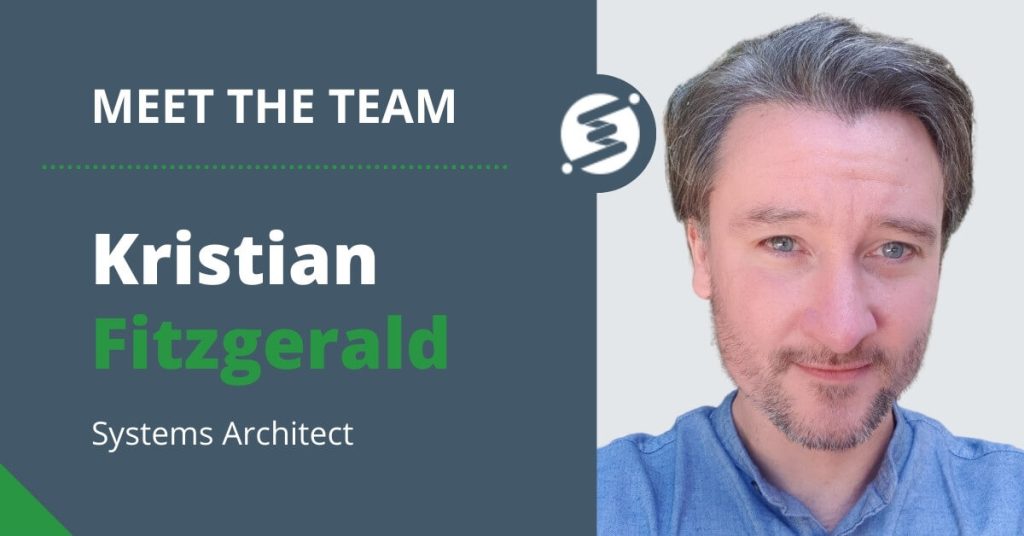1. Describe your job as if you were explaining it to a five-year-old?
An automated factory is a place where a lot of robots make things such as medicines. We write a list of steps for the robots to follow to allow them to make the medicines.
2. What types of projects are you working on at the moment?
My current project is to create a development environment where software engineers can create flow charts with blocks that either have specific functions or allow the engineer to add their own Python code to create custom blocks.
This flowchart can then be executed, and the blocks can talk to controllers on the production line. The goal is to use these flowcharts when testing production lines. The system will run the production line through different scenarios and verify automatically that everything is working correctly. It then outputs documentation to record the results of the tests.
3. How did you get into the industry?
I took general engineering in university – construction, electronic, mechanical, and computer engineering. I discovered I liked writing software at college. SL Controls was my first job, mostly to get some work experience at the time. I liked the work here and so I’ve been here since – mostly. I started in 2009 and went back to college for a year in 2013 to do a masters before coming back to SL Controls in 2014. All in all, it is 10+ years with the company.
4. What is your proudest moment (work life or personal life)?
It might be completing a compare tool that could compare two PLC programs. PLC code has visual aspects to it as well as text, such as flow charts. It was quite a challenge to design a comparison algorithm and UI that would display all the code from both programs visually, clearly showing the differences between them.
5. What’s the best advice you could give to someone thinking of coming into this industry?
Continuous learning is key in this field. There are many technologies that work together in a manufacturing environment, from PLCs controlling motors, sensors, servos, conveyors & robots to SCADA systems that provide user interfaces to people on the lines. There are also MES systems distributing data to all parts of the company, databases, C# apps, web applications, and more.
My advice is to embrace new challenges, always seek out new experiences, and be ready to ask plenty of questions of your co-workers. The wider the scope of your knowledge the more enjoyable the tasks you end up working on will be, and the more valuable you will become.
6. Outside of work, what are you most passionate about?
I like a few boarding sports. I try to go snowboarding every year and Ireland is really great for surfing. I am learning to windsurf at the moment which is a lot easier living in Galway. There is a really good windsurfing school less than 10 minutes from the office.
7. What’s the best thing about working for life sciences customers (pharma, MedTech, etc)?
Teamwork and learning from different experts have to be up there. This gives you a rich range of knowledge and ideas. The life sciences industry is also always changing and evolving, so you never get bored. You always have the chance to keep learning and growing, adding more tools to your skillset.
There are excellent career growth opportunities too. With the focus on R&D and cutting-edge technologies in the life sciences sector, there are many different opportunities to take on new responsibilities and progress your career.
The life sciences sector also offers job security and stability.
8. What is the best thing about being on the SL Controls team?
The team here is very supportive. Talking through issues someone else is having with their project can be a welcome distraction at times, and someone is always available to bounce ideas off.





